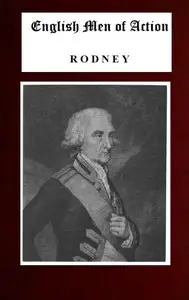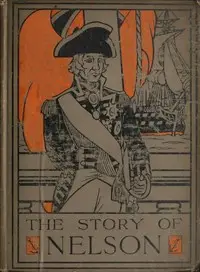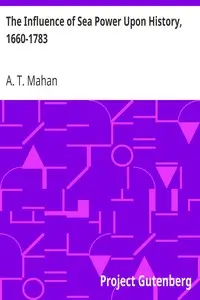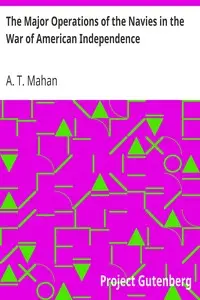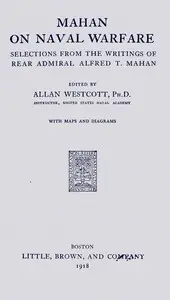"The Life of Nelson, Volume 2" by A. T. Mahan is a historical biography that studies the life and career of Admiral Horatio Nelson. This volume explores Nelson's time as a naval leader, especially in the Mediterranean, highlighting his relationships with important people and decisions that impacted maritime power. Mahan shares details about Nelson's personality, strategies, and the effects of his actions on naval power at the time. Beginning with Nelson taking over as commander in the Mediterranean after Lord Keith left, Mahan shows the problems Nelson faced, like dealing with health issues and feeling unhappy about his limited power. The book gives a view of Nelson's leadership during an important time, filled with planning moves, talking with foreign leaders, and working to keep Britain strong at sea, showing a picture of a respected leader facing difficulties and the realities of war.

The Life of Nelson, Volume 2 The Embodiment of the Sea Power of Great Britain
By A. T. (Alfred Thayer) Mahan
Follow an admiral's journey as he confronts challenges, makes strategic decisions, and fights to maintain dominance in the Mediterranean.
Summary
About the AuthorAlfred Thayer Mahan was a United States naval officer and historian, whom John Keegan called "the most important American strategist of the nineteenth century." His 1890 book The Influence of Sea Power Upon History, 1660–1783 won immediate recognition, especially in Europe, and with the publication of its 1892 successor, The Influence of Sea Power Upon the French Revolution and Empire, 1793–1812, he affirmed his status as a globally-known and regarded military strategist, historian, and theorist. Mahan's works encouraged the development of large capital ships — eventually leading to dreadnought battleships — as he was an advocate of the 'decisive battle' and of naval blockades. Critics, however, charged him with failing to adequately explain the rise of largely land-based empires, such as the German or Ottoman Empires, though Mahan did accurately predict both empires' defeats in World War I. Mahan directly influenced the dominant interwar period and World War II-era Japanese naval doctrine of the "decisive battle doctrine" , and he became a "household name" in Germany. He also promoted American control over Hawaii though he was "lukewarm" in regards to American imperialism in general. Four U.S. Navy ships have borne his name, as well as various buildings and roads; and his works are still read, discussed, and debated in military, historical, and scholarly circles.
Alfred Thayer Mahan was a United States naval officer and historian, whom John Keegan called "the most important American strategist of the nineteenth century." His 1890 book The Influence of Sea Power Upon History, 1660–1783 won immediate recognition, especially in Europe, and with the publication of its 1892 successor, The Influence of Sea Power Upon the French Revolution and Empire, 1793–1812, he affirmed his status as a globally-known and regarded military strategist, historian, and theorist. Mahan's works encouraged the development of large capital ships — eventually leading to dreadnought battleships — as he was an advocate of the 'decisive battle' and of naval blockades. Critics, however, charged him with failing to adequately explain the rise of largely land-based empires, such as the German or Ottoman Empires, though Mahan did accurately predict both empires' defeats in World War I. Mahan directly influenced the dominant interwar period and World War II-era Japanese naval doctrine of the "decisive battle doctrine" , and he became a "household name" in Germany. He also promoted American control over Hawaii though he was "lukewarm" in regards to American imperialism in general. Four U.S. Navy ships have borne his name, as well as various buildings and roads; and his works are still read, discussed, and debated in military, historical, and scholarly circles.




